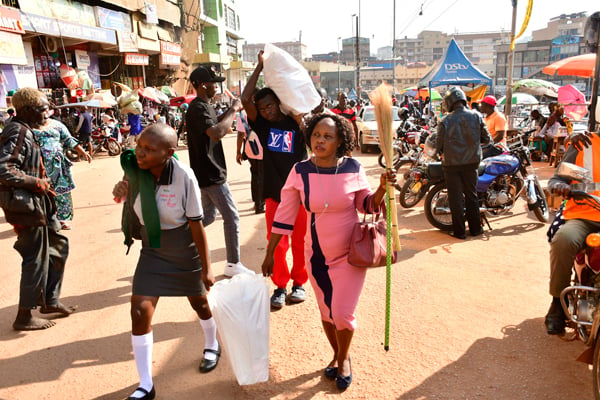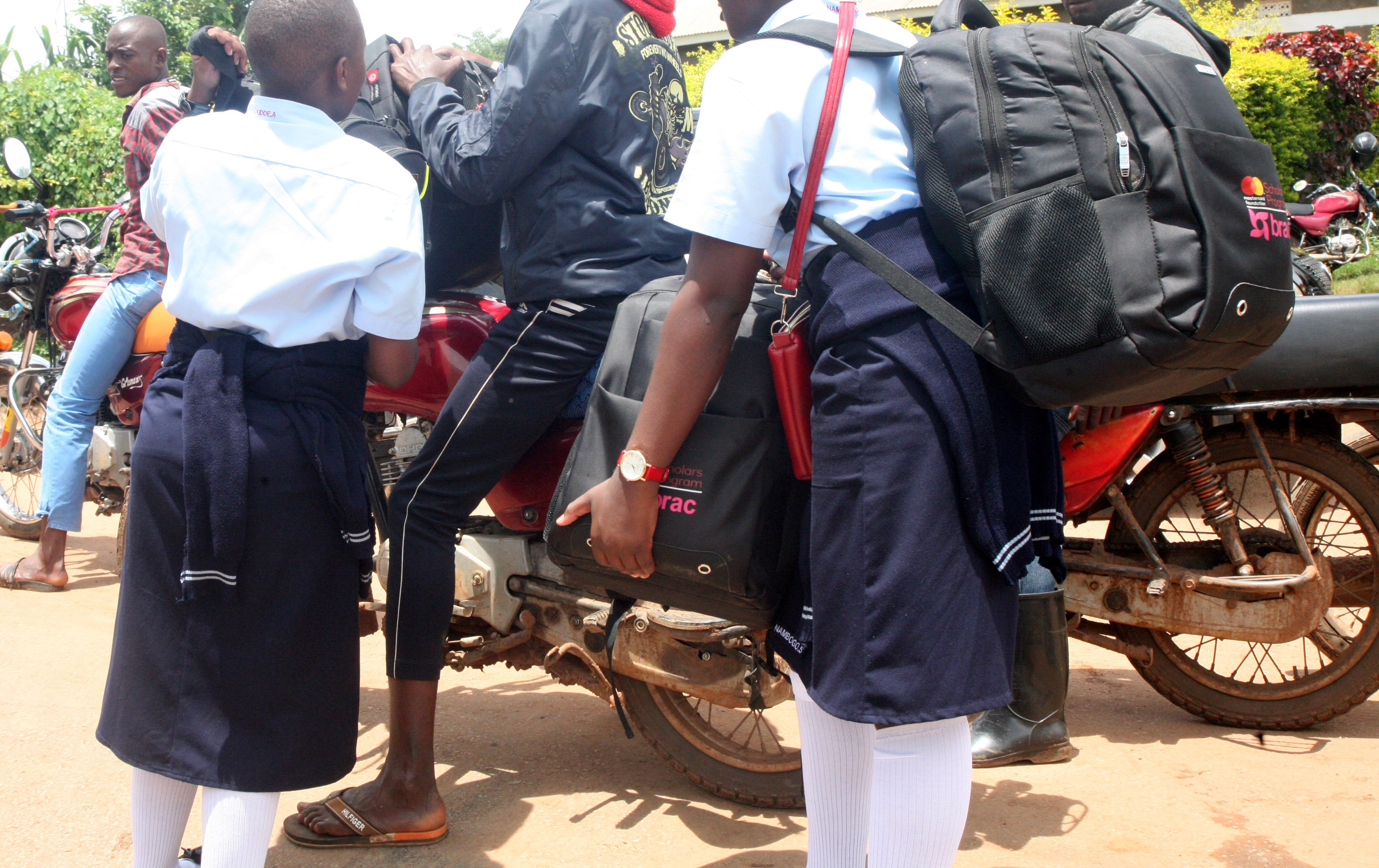Prime
Govt to close schools over high fees

A parent takes her child to school in Old Park, Kampala on February 4, 2024. Schools pointed to utility bills and feeding expenses as significant cost drivers. PHOTO/STEPHEN OTAGE
What you need to know:
- Government has vowed to crackdown on schools that defy its directives against exorbitant school fees with effect from term two.
All schools that defy government guidelines and increase school fees exorbitantly, will be closed effective term two of the 2024 academic year, government has vowed.
Government says this follows endless public outcry over persistent school fees increments.
“The Ministry of Education and Sports (MoES) is already in the process of formulating a statutory instrument and once passed, no school will do otherwise and they will all have to follow our regulations and be governed and whoever doesn’t allow will have to close the school especially private ones,” state minister for primary education Dr Joyce Kaducu said on Tuesday.
According to Kaducu, government will start implementing a regulation on 12 items passed by cabinet that schools should not include in their fees structure.
“We are not going to allow this to continue. We are going to bite- and this time round biting hard,” the minister told journalists at the closure of a two-day S5 selection exercise.
Dr Kaducu noted that cabinet listed 12 items that should not be charged as part of school fees in pre-primary, primary, and secondary schools.
These include charges for any infrastructure developments, activities of the board plus activities of Parents’, Teachers’ Association (PTA), among others.
“From term two, these items are going to be regulated properly… There will be a real fight between the law enforcers and the school managers,” Kaducu warned, speaking barely a week after several parents accused schools of charging exorbitant fees.
‘Free, affordable education’
During the February 15 release of the 2023 Uganda Certificate of Education (UCE) examination results, education minister Janet Museveni pledged that government will start implementing free and compulsory Universal Secondary Education (USE) and Universal Primary Education (UPE) to counter high school fees.
The program is expected to start in 2025 with UPE with government estimates saying it requires Shs309.1billion to supplement Shs1.3trillion currently injected in the sector.
“I would like you to desist from unjustified increases in fees, be mindful of the struggling parents and the fact that these fees have kept many learners out of schools. You must accept to be governed and regulated,” the education minister said in a speech addressed to head teachers but read by Dr Kaducu on Tuesday.
The deputy chairperson of the Association of Secondary School Head Teachers of Uganda (ASSHU), Debora Basekanakyo earlier on held that schools, including government-aided learning institutions, “are sometimes forced to hike school fees to pay teachers who are not on government payroll, and to address staffing gaps.”
“Over 400 head teachers are still in acting capacity, yet the recent advert is looking at recruiting only 75 head teachers. It is our humble request that the head teachers in the acting capacity be confirmed because they have the required qualifications,” she added.
The selection exercise was aimed at placing 236,280 learners in at least 870 government-aided secondary schools and 1,172 private secondary schools that offer the A’ Level curriculum.
Speaking at the event, the chairperson of the placement committee who also doubles as the undersecretary at the Ministry of Education and Sports, Dr Jane Egau, asked head teachers to continue admitting more students from their schools but in an integral and fair manner.
Compiled by Busein Samilu, Sylivia Katushabe, Jane Nafula, Priscilla Maloba, Lydia Felly Akullu, Karim Muyobo, Moses Ndhaye, Ibrahim Khalil Manzil and Shabibah Nakirigya.



